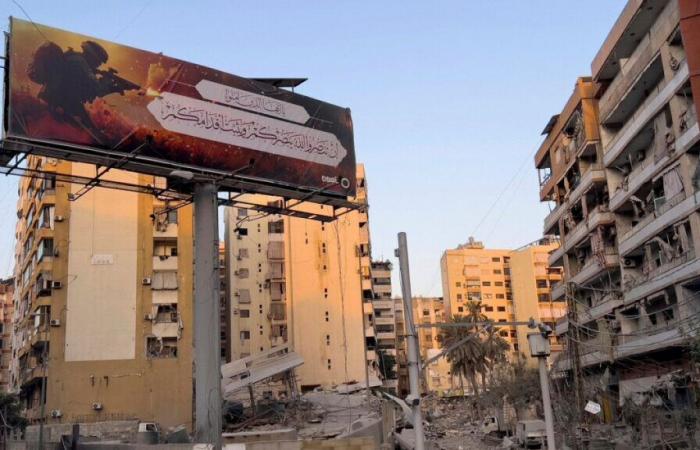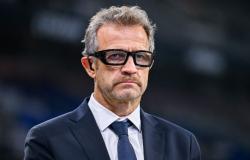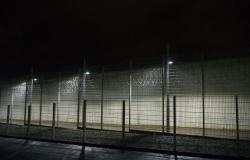Peace talks between Israel and Hezbollah center around the withdrawal of both forces’ troops from a United Nations buffer zone in southern Lebanon.
ADVERTISEMENT
Peace talks between Israel and Hezbollah center around the withdrawal of both forces’ troops from a United Nations buffer zone in southern Lebanon.
Amos Hochsteinthe US envoy in charge of truce negotiations between Israel and Hezbollah in Lebanon said an agreement to end the war between the two sides was “within our reach” on Tuesday.
According to the Biden administration official, Hezbollah’s allies in the Lebanese government indicated that the militant group had responded positively to a proposal for its fighters and Israeli ground forces to withdraw from a buffer zone of the ‘UN in South Lebanon.
In such a scenario, the buffer zone would be monitored by thousands of UN peacekeepers and additional Lebanese troops.
Amos Hochstein, senior advisor to President Joe Biden, is received before a meeting with the Speaker of the Lebanese Parliament, Nabih Berri. Nov 19, 2024Hassan Ammar/Copyright 2024 The AP. All rights reserved
Mr. Hochstein said he had “discussions constructives” with the speaker of the Lebanese parliament, who acts as mediator for the group.
“Ultimately, it is up to the parties to decide how this conflict ends. …It is now within our reach”, Mr. Hochstein said, adding that the Lebanese side was now waiting to hear the results of Mr. Hochstein’s talks with Israeli officials.”
Stumbling points remain
Despite his optimism, Mr Hochstein admitted that the technical details of a possible truce had not yet been resolved.
Israel is likely to seek greater law enforcement along the buffer zone that demarcates the two countries, including the possibility of carrying out military operations against Hezbollah threats.
The buffer zone, known as “blue line”was first established by the United Nations in 2000 to verify whether Israel had fully withdrawn from Lebanon.
It is patrolled by soldiers of the United Nations Interim Force in Lebanon (UNIFIL), which was set up to create a zone in the south of the country free of armed forces other than those of the Lebanese army.
The blue line, illustration Map of UNIFIL, deployment in July 2006
Lebanon will likely oppose any further military operations in the buffer zone, where UNIFIL members have said they have been the target of rocket fire following the escalation of tensions between Israel and Hezbollah.
Four soldiers were injured when a rocket hit a UNIFIL base in southern Lebanon on Tuesday, in two separate incidents in the village of Ramyah, near the Israel-Lebanon border.
The Israel Defense Forces (IDF) accused Hezbollah of being behind the incident.
Israel has accused UNIFIL of turning a blind eye to Hezbollah, with Israeli Prime Minister Benjamin Netanyahu demanding the force withdraw from “combat zones”.
The United Nations insisted its peacekeeping forces would remain in the region, while the leaders of Italy, France, Britain and Germany condemned attacks on soldiers of peace, considering that they were contrary to international law.






